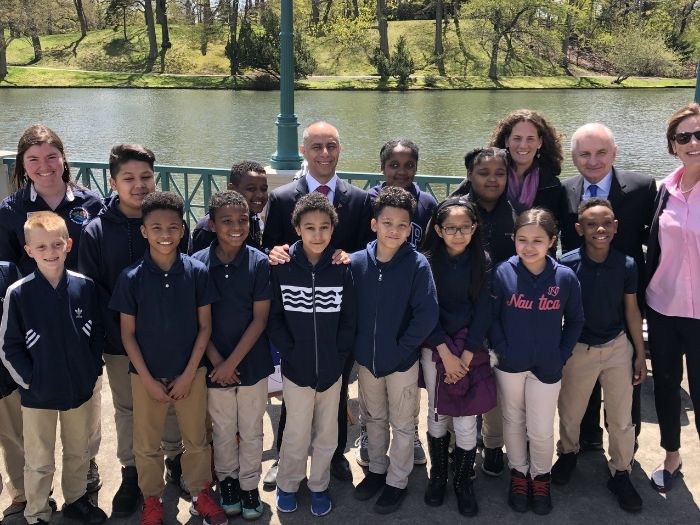Published May 9, 2019
Providence, RI is the newest Urban Bird Treaty city!
On Monday, Mayor Jorge O. Elorza and U.S. Fish and Wildlife Service Northeast Region Regional Director Wendi Weber signed an Urban Bird Treaty for the city of Providence. Audubon is proud to have partnered with Providence Parks Urban Wildlife Refuge Partnership to bring bird walks to the city's parks and residents, making this fast growing hobby and environmental education accessible to all.
Students from the Paul Cuffee School's Wild Kids Club were the first to experience an official Urban Bird Treaty city bird walk, led by Audubon Senior Director of Education Lauren Parmelee!
Providence is the 30th city in the nation to receive this designation after years of hard work to enhance urban habitat for birds, reduce hazards faced by urban bird species, and engage the community through citizen science and environmental education.
Learn more about the Urban Bird Treaty Program:
Fact Sheet | Website | Interactive Story Map

Photo by Peter Green.

















